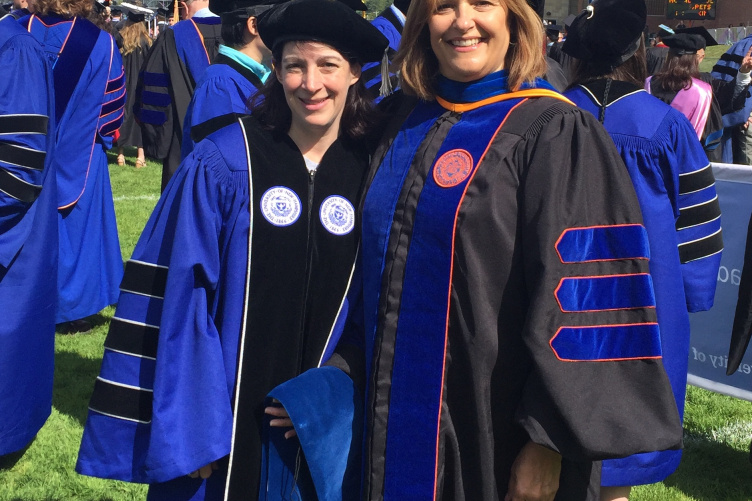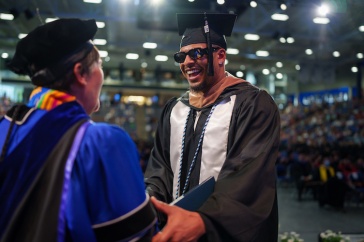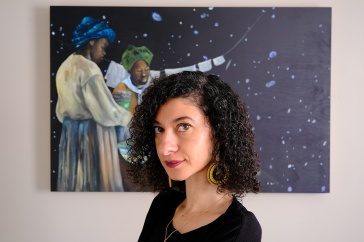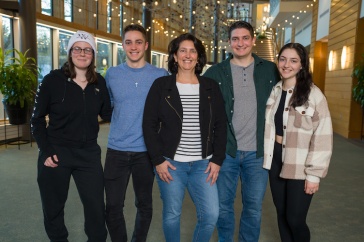
Dr. Erika Baril and her advisor, Dr. Leslie J. Couse
For years UNH graduate Erika M. Baril worked with families and young children as an early intervention speech language pathologist, a profession she loved because it wove together her interests and allowed her to help people. But after some time, Baril saw there were limitations to the position; if she wanted to help even more people, she needed to change her focus from families to systems.
“I wanted to work higher up at a systems level, and work with the people who were going to be helping the families. I wanted to work with providers and help with professional development and pre-professional development,” Baril said.
A Ph.D., Baril knew, would help her do that. The past five years, she has been working vigorously on her doctorate while juggling work and being a wife and mother of two young children. At UNH, she served as a research and teaching assistant, published an article in the Journal of Early Intervention and was a 2017-2018 recipient of one of the graduate school’s Dissertation Year Fellowships.
Baril’s dissertation, “Perceptions of Caregiver Coaching and Factors That Influence Implementation: A Mixed Methods Case Study of New Hampshire’s Part C Early Intervention,” focuses on caregiver coaching, i.e., helping families help their children.
“My passion and love has always been that interaction and working not just with the child, but working with the child in context of the family,” she said. “It’s so important to help the family develop strategies to help support their child because they’re the ones with the child most of the time. … Parents come in with a tremendous amount of knowledge about their child and know what’s been successful, and that gives the provider something to build off.”
In 2018, the hard work is paying off. In addition to graduating last spring with a Ph.D. in education: children and youth in communities and minor in college teaching, Baril’s dissertation was awarded dissertation of the year at the National Association of Early Childhood Teacher Educators (NAECTE) conference in November, which Baril attended with her advisor Leslie Couse.
Since graduation, Baril has been working at the state level as the Child Outcomes Summary (COS) coordinator for New Hampshire’s Part C Family-Centered Early Supports and Services and as a COS master cadre trainer and coach. In addition, she was recently accepted to be a member of the Council for Exceptional Children's publications review panel.
Baril hopes the recognition will facilitate connections that will help inform of the importance of early intervention caregiver coaching for children ages 3 and younger. When she began the work most research focused on older children, but Baril feels you can have the biggest impact on kids when they’re young. Early intervention providers are in the ideal position to teach families about the systems they’re entering and how to create and maximize learning opportunities for their children in everyday tasks.
“You don’t have to carve out time to do the therapy; it should be embedded in what you’re doing anyway. When you’re getting the child dressed in the morning or brushing their teeth, or if it’s bath time or mealtime – all those can be activities that foster learning and development,” Baril said.
-
Written By:
Kristen Melamed | Graduate Admissions



















































